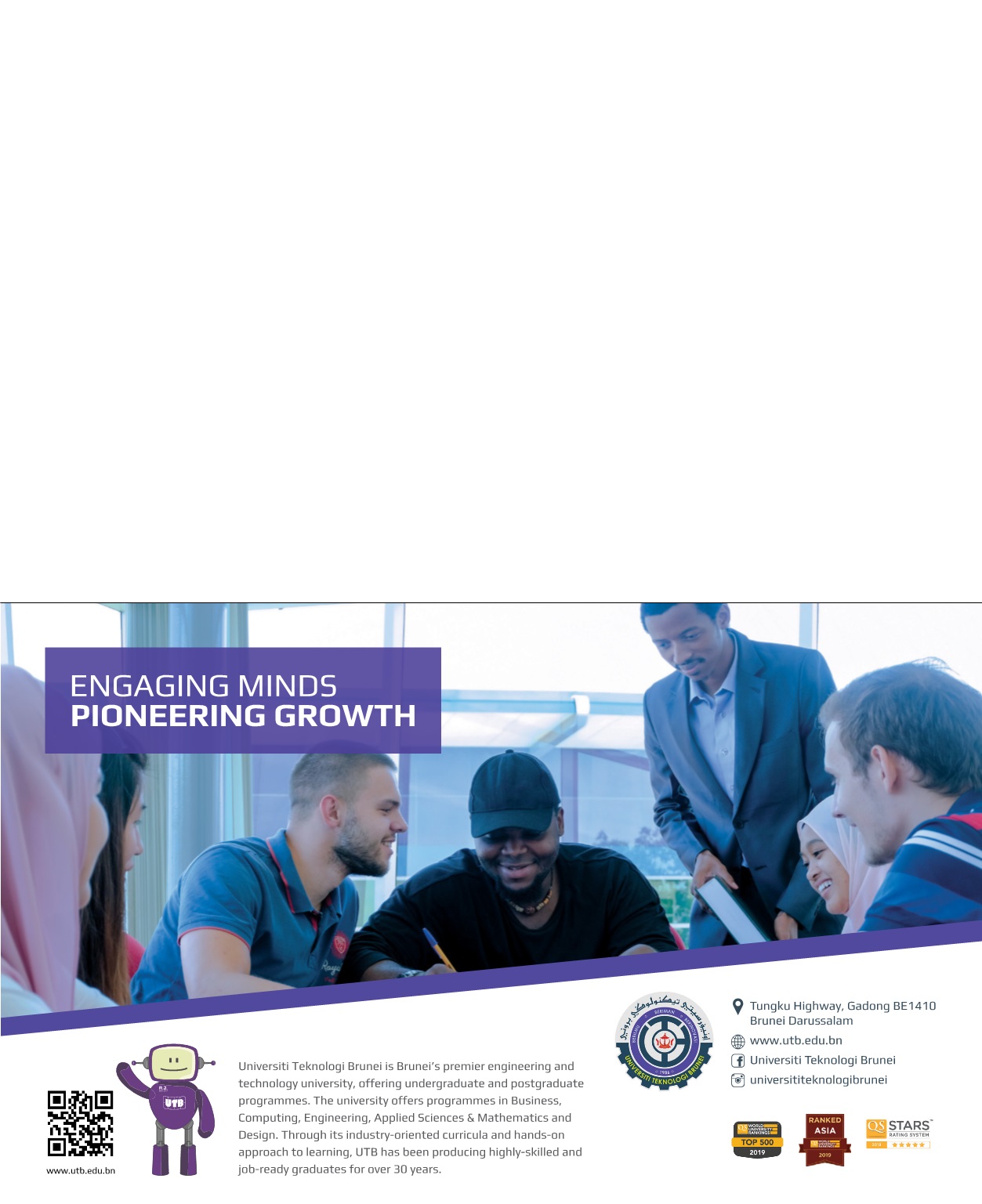

183
EDUCATION
Product Design, exploring design fundamentals,
innovation, material sciences, manufacturing
processes and technopreneurship. A new
research centre – CrAFT, Centre for Research
in Agrifood Science & Technology was also
established in that year which aimed to support
the nation’s aspiration to diversify its economy
by strengthening the Agrifood industry using
science and technology.
To date, UTB has produced over 5,000 BDTVEC
HND graduates, 300 HND Level Five graduates,
1,000 undergraduates and over 70 Master’s
degree graduates from academic programmes
offered by the Faculty of Engineering, School
of Computing and Informatics, and School of
Business. UTB strives to become a university
that contributes to enrichment of knowledge
and solving contemporary issues with
research focussed on Energy, Sustainable Built
Environment, Agrifood, Digital and Creativity,
Society and Enterprise, and Wellness.
UTB’s mission is to nurture socially-responsible
talents that are deeply-rooted in MIB values
and committed to building a global and
entrepreneurial society in pursuit of innovation
and industry-relevant capabilities. Towards this,
the university places importance in providing
Quality Education and developing Independent
Learners – two of the Strategic Focus Areas
in its five-year Strategic Plan. An important
initiative is to ensure that its academic
programmes are accredited by the respective
professional bodies. Professional accreditation
is an indicator that the programmes meet the
high standards set by the professions and also
able to equip graduates with the right aptitude
and solid foundation in the discipline. As of 2018,
UTB has acquired professional accreditation in
its Civil Engineering, Computing and Accounting
programmes.
In moving forward, UTB has developed its new
five-year Strategic Plan 2019-2023, focussing
on four strategic areas: Quality Education,
Independent Learners, Translational Research
and Quadruple Helix Engagement. Successful
implementation of initiatives under these focus
areas within the five-year period will see the
university improving its global prominence
while making a strong impact and contribution
to the country’s human resource, industrial and
enterprising capabilities.









